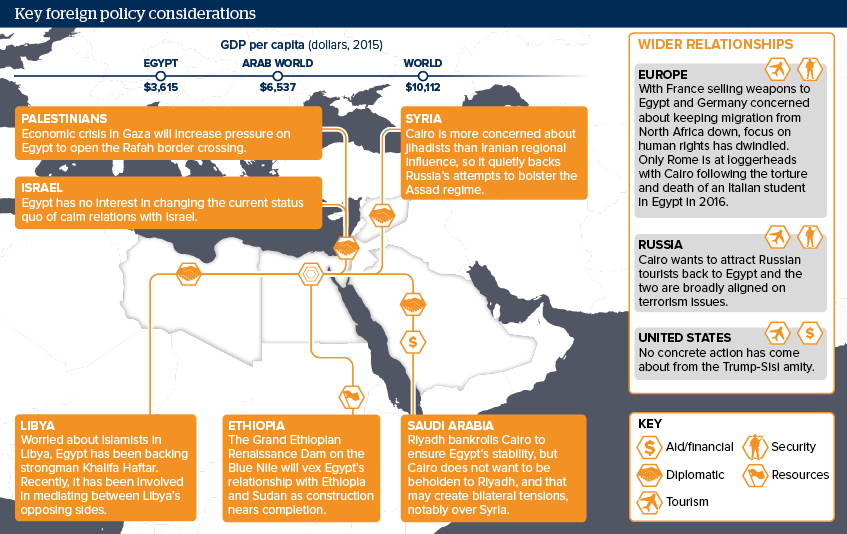Egypt’s foreign policy will be a balancing act
Cairo’s anti-Islamism jars with chief backer Saudi Arabia, but brings it closer to the United Arab Emirates and Russia

Source: Oxford Analytica
Outlook
Egyptian President Abdel Fatah el-Sisi yesterday arrived in Bahrain, having previously been in Kuwait and Saudi Arabia. The visit to Riyadh signalled that Sisi and King Salman had mended a months-long rift. The two allies fundamentally need each other: Egypt is too big for Saudi Arabia to allow it to fail, and Egypt’s economic crisis means that it still requires help from the Gulf. Yet spats cannot be avoided. Saudi Arabia focusses on the threat from Iran while Egypt prioritises the fight against political Islam.
However, now that the domestic threat from the Muslim Brotherhood has subsided, Cairo may be open to reconsider its previously uncompromising stance: Egypt, Italy, and the United Arab Emirates have been at the heart of efforts to bring anti-Islamist Libyan strongman Khalifa Haftar to the negotiating table.
Impacts
- Sisi will seek to enhance his legitimacy by appearing close to US President Donald Trump.
- Yet Cairo will be reluctant to fulfil US expectations of a wider Sunni Arab alliance with Israel against Iran.
- Egypt’s softening anti-Islamist stance in Libya may only be applicable to that country.
- Climate-vulnerable Egypt is unprepared to deal with the impact from climate change, and this will guide its foreign policy in the long-term.
- Cairo will orient its diplomacy towards securing adaptation aid and holding developed countries to their pledges.